Narratives critical of the exercise rehash claims from last year’s maneuvers in an attempt to stir COVID fears
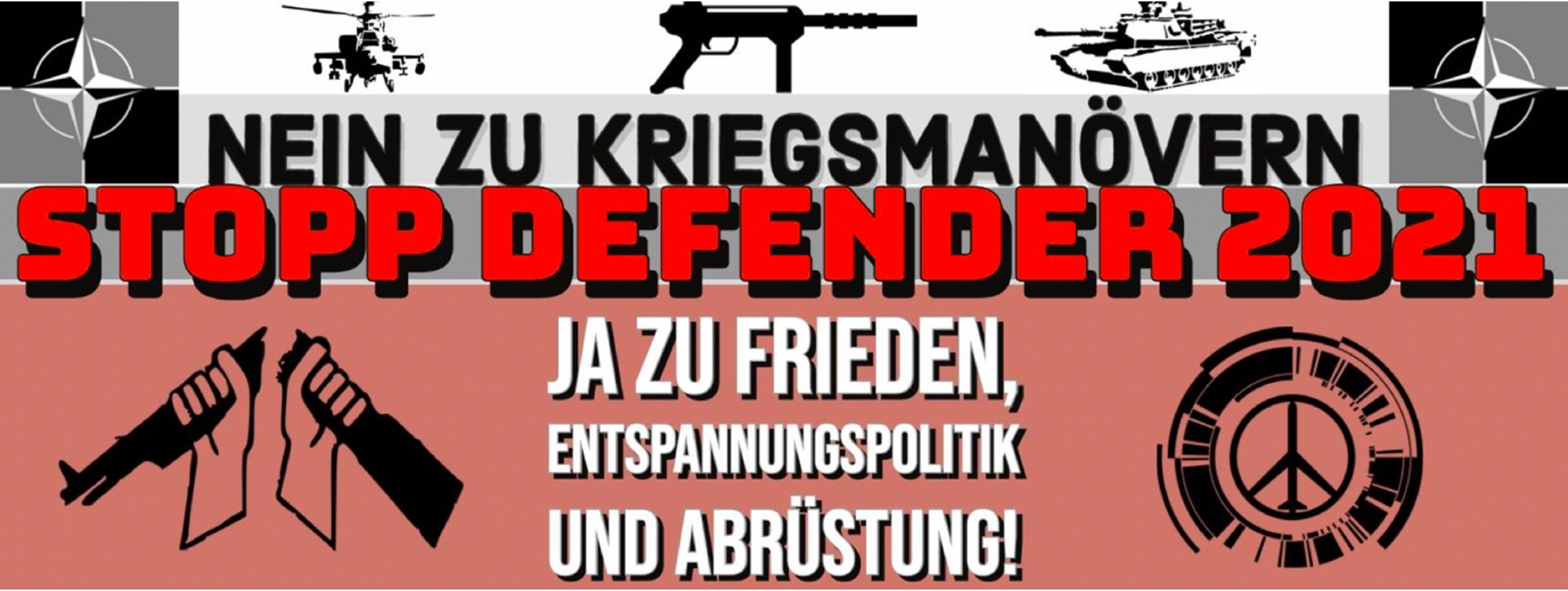
By Lukas Andriukaitis
As the NATO exercise Defender Europe 21 is about to start, European fringe media outlets, pro-Kremlin media and populist European political parties have begun using coronavirus narratives to condemn the exercises.
Defender 21 is the biggest NATO exercise taking place in Europe this year. And just like last year’s Defender 20 exercise, it is receiving negative attention and online engagement with very similar coronavirus narratives. Generally speaking, these narratives are primarily pushed by three groups: fringe media outlets across Europe, populist far-left political parties and pro-Kremlin media outlets in Russia and Europe.
Most of the articles that address the Defender 21 exercise using COVID-19 narratives emphasized the carelessness of NATO allies, juxtaposing the exercise against the health of the European population. As was the case last year, the main overarching narrative claims that the exercise would help spread COVID-19 across Europe, at a time when COVID cases are skyrocketing across much of the continent, in an attempt to stir up regional anti-NATO sentiment.
Pro-Kremlin media outlets
One of the most active groups spreading anti-Defender 21 COVID narratives consists of pro-Kremlin media outlets. For example, Sputnik News wrote similar stories in Lithuanian, Latvian and German languages. In Latvian and Lithuanian, the stories were mostly written by Aleksandras Chrolenko and were more aggressive with its argumentation. In some of the Lithuanian and Latvian stories, Chrolenko argued without evidence that international NATO battalions are responsible for rapid COVID spread in the Baltic countries, alleging that many soldiers are staying in civilian hotels and going to restaurants. Meanwhile, in SNA News — the recently rebranded Sputnik News Germany — the message was a little more subtle. Their stories largely revolved around the supposedly made-up Russian threat, or that the Defender Europe 21 will not increase regional security. Another SNA story about Defender 21 put the phrase “safety measures” in quotes, in an attempt to criticize NATO’s ability to protect the European populace from the virus.

Fringe media outlets
Another group that spread anti-Defender 21 COVID narratives is multinational fringe media outlets. The DFRLab found examples in various languages, including Italian, Slovak, German and Italian.
In Slovakia, Hlavný denník wrote that 17 military convoys traveled through the country over the course of seven days, as Slovaks were obliged to empty the roads and forced to stay at home due to COVID. In Germany, Die Freiheitsliebe argued that U.S. military maneuvers were stopped in 2020 due to the pandemic, and despite the ongoing controversy, the exercise is taking place this year as planned. Similarly, Italian fringe media outlets mostly focused on the fact that the U.S. was still organizing the large-scale multinational exercise, despite the latest increases in European COVID cases. La Voce dell’Isola quoted Sputnik News Italy and finished the article on an ironic note similar to a narrative used by pro-Kremlin media outlets, saying that there is no actual enemy for the exercise to practice against, as Russia should not be seen as a threat to Europe.
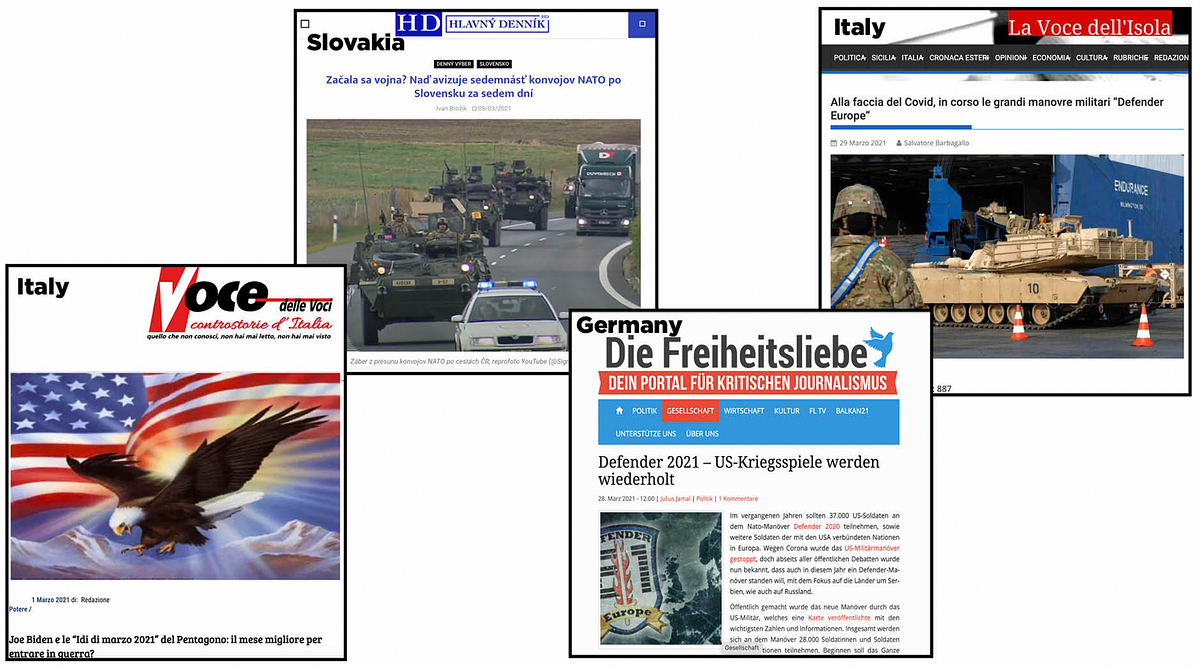
Political movements
Lastly, political parties and far-left political media outlets shared similar narratives about the exercise, namely in Germany and Italy.
German political parties and movements were by far the most active with the spread of anti-Defender 2021 narratives. As the DFRLab reported in 2020, politicians of the far-left political party Die Linke were again amongst the most active, including Die Linke MPs Sevim Dagdelen, Dietmar Bartsch, Andrej Hunko and Gregor Gysi, who posted content that received the most engagement on the topic. They posted slogans such as “We are not threatened by a foreign army, but by a virus,” and “Lockdown for NATO maneuvers Defender Europe 2021,” garnering thousands of engagements.

Some of the quotes by Die Linke party were used in the Deutsche RT and SNA News articles, whose headlines claimed “The West seeks even more confrontation with Russia” and “Despite the lockdown, U.S. begins the major maneuvers Defender 21.”
Similarly to last year, German Facebook pages and groups arguing against the Defender 21 emerged. Some of them were recycled from last year. For example, a public group “Gegen Defender 21” (Against Defender 21), was repurposed from last year’s Defender 20 exercise. The name and the banner were updated to reflect the new year; the group continues to be highly active, with more than 20 new posts per day. One of the administrators of the group, Franz Haslbeck, claims to be connected the Die Linke party in his Facebook bio.
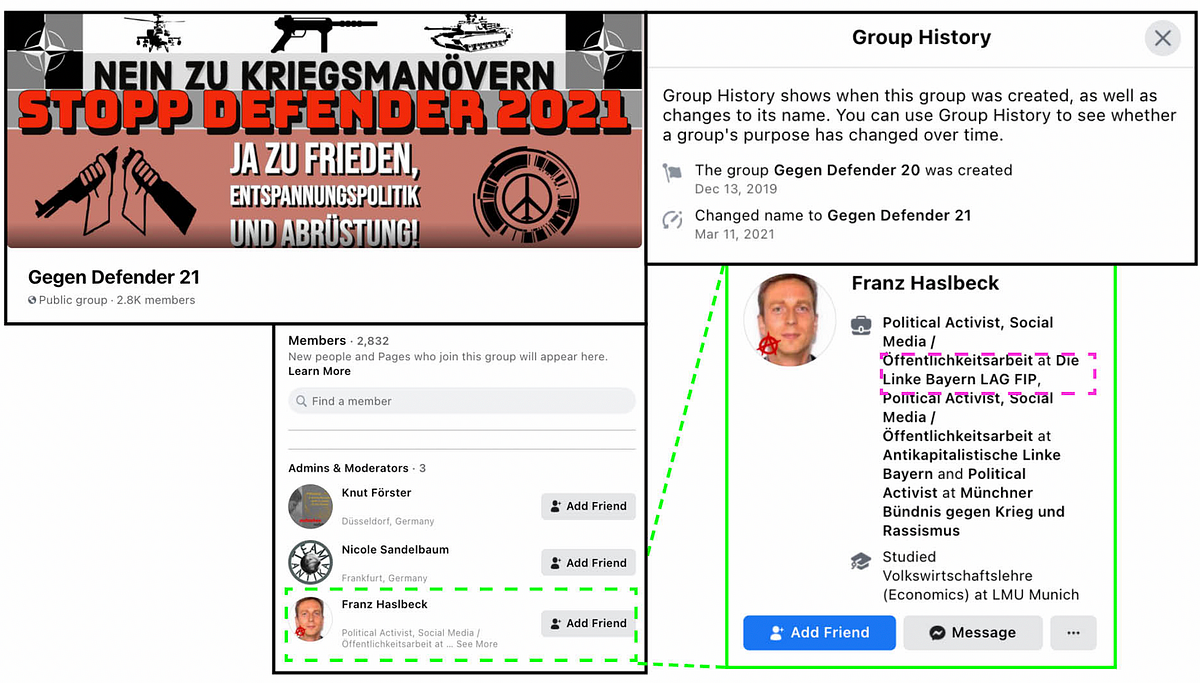
Meanwhile in Italy, the most vocal were communist and left-leaning outlets. These articles criticized both NATO and the U.S. for organizing maneuvers when Europe is “under the grip of the pandemic,” and that in “Europe, paralyzed by COVID, U.S. tanks will move”, sarcastically questioning the why this exercise was organized in the first place.
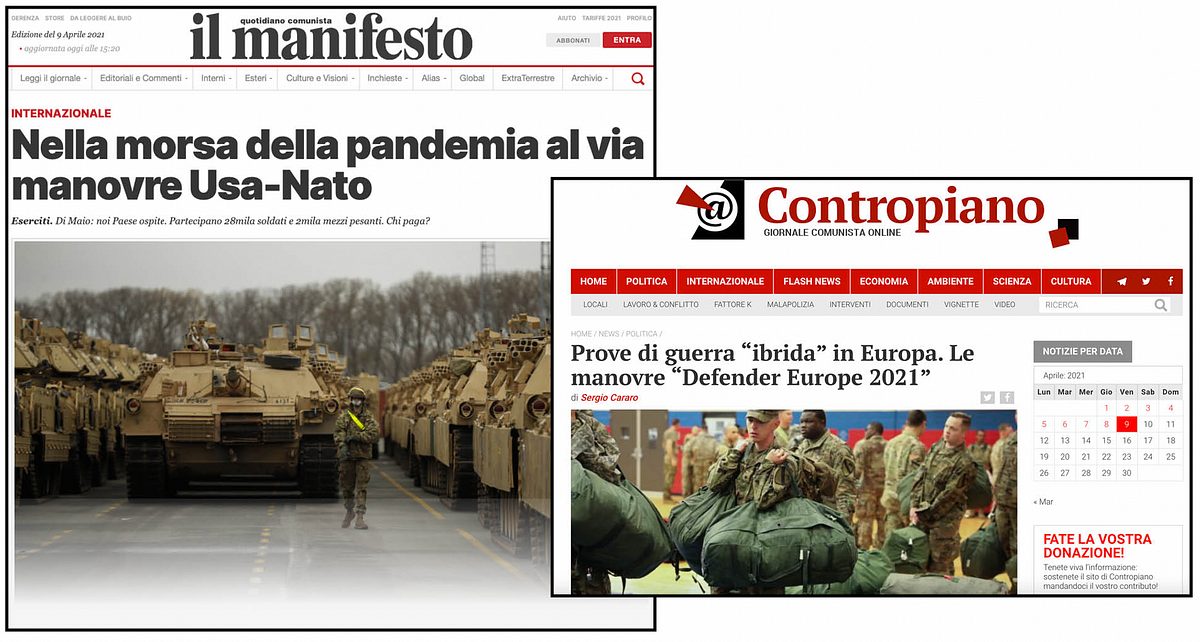
Engagement
Though the anti-NATO coronavirus narratives appeared simultaneously within different language information spaces, only a number of articles managed to receive any notable social media engagement.
There are no clear trends in which articles were shared the most, with variety of websites and languages appearing among the content that was shared the most. Amongst these were fringe media outlets, pro-Kremlin media outlets and far-left outlets that garnered thousands of engagements. Facebook posts by Die Linke also managed to garner high levels of engagement, suggesting that these anti-Defender 21 narratives managed to receive significant readership online.
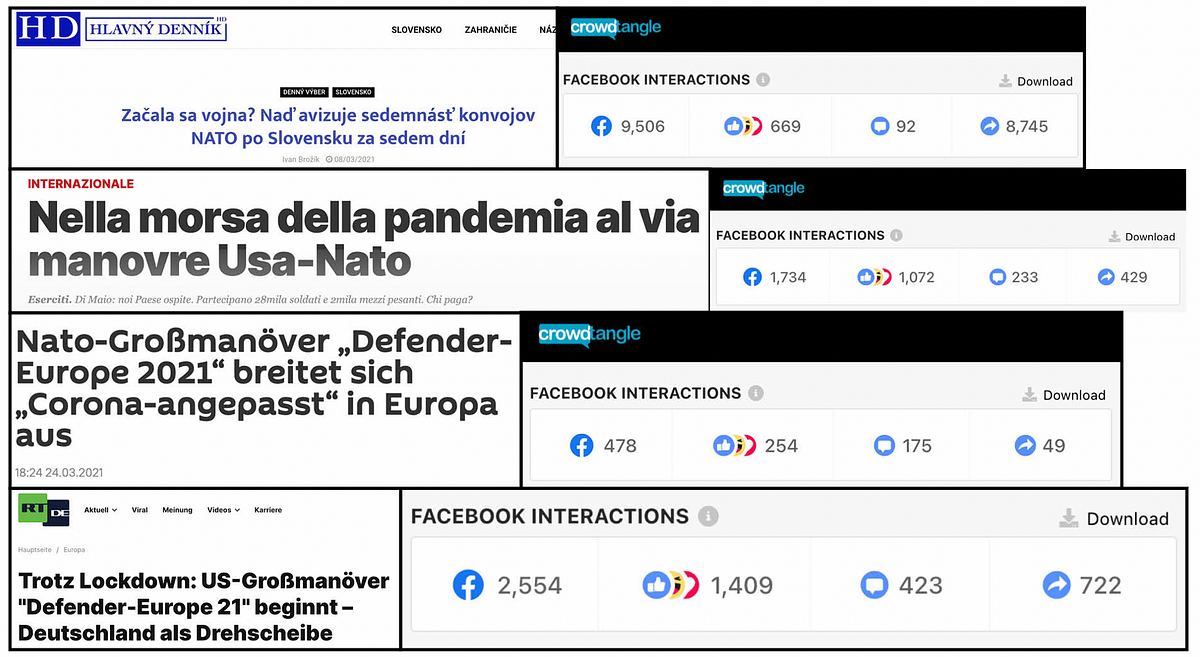
The DFRLab has previously reported on various actors spreading coronavirus related narratives to Defender Europe 2020. Many of the same groups spreading those narratives returned this year as well, including German Die Linke party, which is often quoted by the pro-Kremlin media outlets. These messages aim to transfer public angst about the pandemic towards the NATO exercise, a sentiment that could potentially find more engagement as the vaccine rollout stalls in Europe. Multi-lingual spread of these narratives and high levels of engagement in this content signifies a successful spread of malign messages aimed at this NATO exercise.
Lukas Andriukaitis is an Associate Director with the Digital Forensic Research Lab.
Cite this case study:
Lukas Andriukaitis, “Anti-NATO COVID narratives from 2020 come back to haunt Defender 21 exercise,” Digital Forensic Research Lab (DFRLab), April 13, 2021, https://medium.com/dfrlab/anti-nato-covid-narratives-from-2020-come-back-to-haunt-defender-21-exercise-c8070485e5e5.
Follow along for more in-depth analysis from our #DigitalSherlocks.

